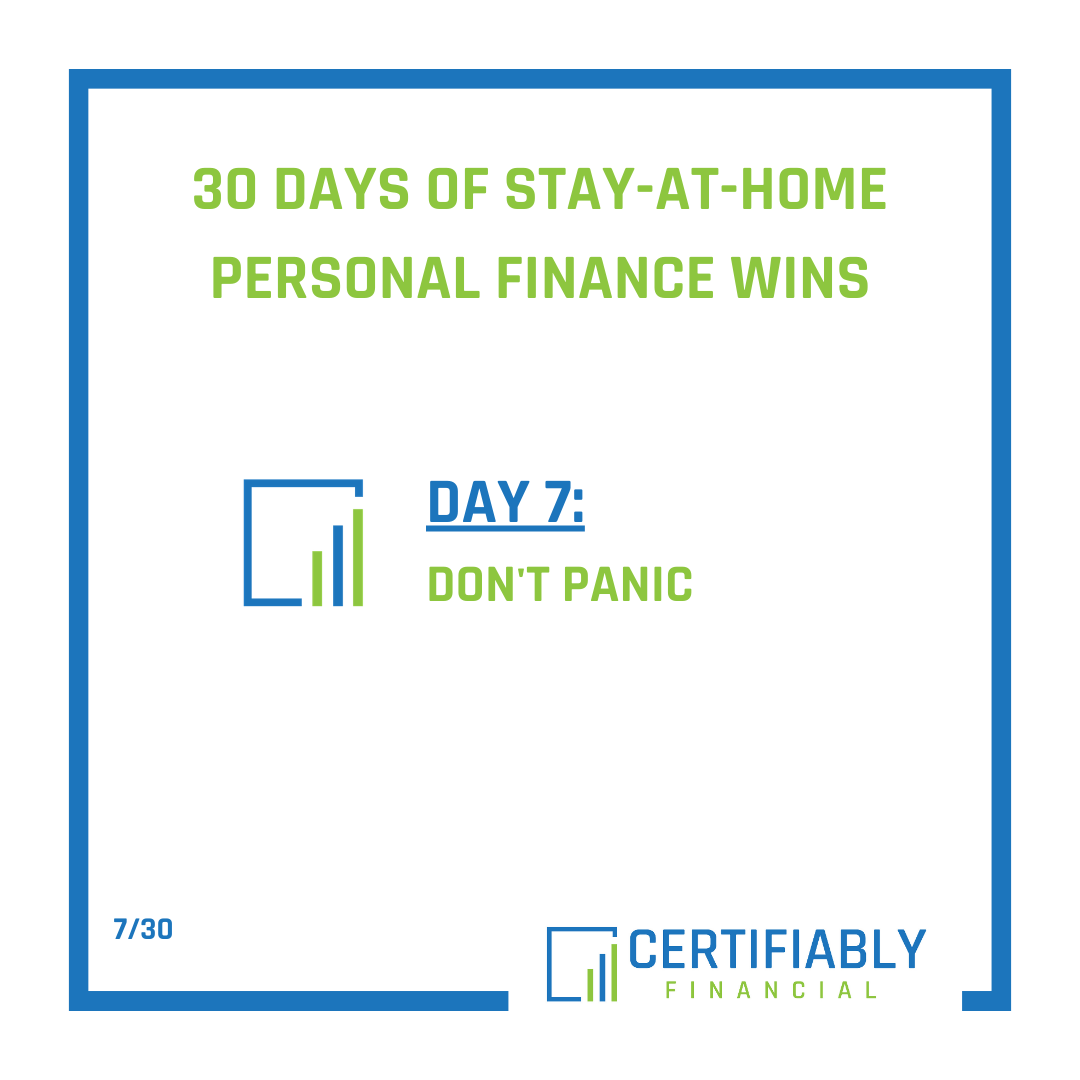What if you were able to come out of this time of social distancing and economic crisis with a stronger and healthier financial life? What if you looked at this as an opportunity to take a little bit of your extra time each day to work on your finances?
Since it takes me about 35 minutes to drive to work in the morning and 45 minutes on the way back home, I have an extra 1 hour and 20 minutes of my day that I don’t have to drive while I’m working from home that I can use to accomplish something. This doesn’t even take into consideration all of the networking and social events that would usually take up some of my time throughout the week.
Obviously, your situation is different than mine (and probably a whole lot different if you have kids at home who would otherwise be in daycare), but I’m guessing that we all have at least a little extra time right now that we can dedicate to our personal finances.
It looks like we’re going to continue to practice our social distancing skills at least through April, and now is a great time to work on creating a better financial situation, so I’m giving you 30 days of stay-at-home personal finance wins throughout April.
Unfortunately, I understand that there are many who have (and who will) lose their jobs during this time of uncertainty and objectively will not come out on the other side of this with a stronger financial situation. Hopefully, many of these personal finance wins can help to lessen the blow and make things easier on them. On the other hand, I think that many of these wins are still relevant to those who are fortunate enough to be in a position to not have to worry about their job and their finances to help them build a healthier financial life.
Day 7: Don’t Panic
The best thing to do when someone is panicking is to tell them not to panic, right?
Panicking leads to making rash and irrational decisions based on short-term feelings rather than a well thought out long-term plan.
I can show you all kinds of charts and data that show that you’ll be better off if you stick with it for the long-term, but I’ll spare you the details and leave it at this sentence. Let me know if you want to see some of the data.
If you have an appropriate portfolio allocation and an evidence-based investment strategy in place, then your investment philosophy shouldn’t change and you should continue to manage your portfolio in accordance with the plan. Not having a plan in place isn’t an excuse to panic; it’s an excuse to make a plan. Continue making your systematic retirement account contributions, remain focused on the long-term rather than making decisions based on what we think could happen in the short-term, and figure out how to stop worrying about what you can’t control and focus on the things that you can.
PS. Practicing financial distancing and tuning out the noise can help you to not panic.
30 Days Of Stay-At-Home Personal Finance Wins
- Day 1: Understand The CARES Act
- Day 2: File for Unemployment or Short-Time Compensation
- Day 3: Request Forbearance
- Day 4: File Your Tax Return (Maybe)
- Day 5: Commit to Yourself
- Day 6: Practice Financial Distancing

